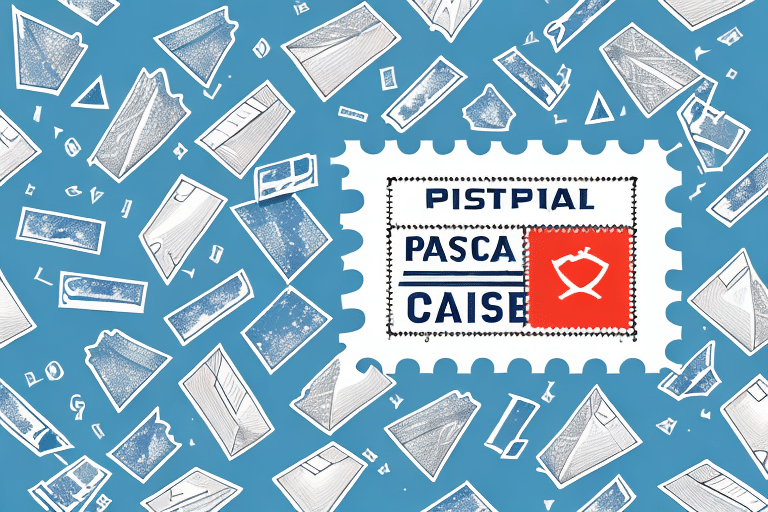Understanding Postage Insurance Rates
If you run a business that involves shipping products to customers, you're likely familiar with the concept of postage insurance. This specialized insurance protects you in the event that a package you're shipping gets lost, damaged, or stolen during transit.
Importance of Postage Insurance for Your Business
Protecting Your Financial Interests
As a business owner, ensuring that your customers receive their orders on time and in good condition is paramount. However, accidents can occur, and packages may occasionally be lost or damaged during shipping. According to the U.S. Postal Service, a significant percentage of packages may face transit issues annually, making insurance a crucial safeguard against unexpected losses.
Building Customer Trust and Loyalty
Offering postage insurance demonstrates to your customers that you prioritize their satisfaction and are committed to resolving any issues that may arise during the shipping process. This proactive approach can lead to increased customer loyalty and positive word-of-mouth, which are essential for the growth and reputation of your business.
Streamlining Your Shipping Process
With postage insurance, you can file claims quickly and efficiently if a package is lost or damaged. This eliminates the need to spend valuable time and resources tracking down the responsible party, allowing you to focus on other critical aspects of your business operations.
How Postage Insurance Works
Basic Principles of Postage Insurance
Postage insurance functions similarly to other insurance types. When you purchase a policy, you pay a premium in exchange for protection against specific shipping-related risks. For instance, insuring a high-value item ensures that you receive compensation equivalent to its full value if it gets lost or damaged during transit.
Types of Postage Insurance Coverage
- Full Coverage: Provides protection for the entire value of the item being shipped, ideal for high-value products.
- Declared Value Coverage: Allows you to declare a specific value for the item, with compensation provided up to that declared amount in case of loss or damage.
- International Coverage: Extends insurance protection to international shipments, which is essential for businesses that ship overseas.
- Priority Mail Express Insurance: Specifically designed for express shipments, offering up to $100 of coverage for time-sensitive items.
- Third-Party Insurance: Offered by external companies, this option can provide additional coverage or lower rates compared to carrier-provided insurance.
Each coverage type has its advantages and limitations, so it's essential to assess your specific needs before selecting a policy.
Factors Affecting Postage Insurance Rates
Value and Nature of Items Shipped
The total value of the items being shipped significantly influences insurance rates. High-value or fragile items typically incur higher premiums due to the increased risk of loss or damage.
Shipping Method and Destination
The chosen shipping method and the destination of the package also play crucial roles in determining insurance costs. International shipments or expedited shipping options may come with higher insurance premiums.
Package Size and Weight
Larger and heavier packages may require more substantial insurance coverage, leading to increased costs. Additionally, the fragility of the contents can impact the insurance rate, as fragile items demand extra care during handling and transit.
Insurance Provider Rates
Different insurance providers offer varying rates based on their policies and coverage options. It's advisable to compare rates from multiple providers to secure the most competitive and comprehensive coverage for your needs.
Choosing the Right Postage Insurance Policy
Assessing Your Coverage Needs
Evaluate the types of items you frequently ship and determine the level of protection required. High-value or frequently lost items may necessitate higher coverage limits to mitigate potential financial losses effectively.
Comparing Insurance Providers
Research and compare rates from various insurance providers. Utilizing comparison websites or contacting providers directly can help you identify the best deals and coverage options available.
Reviewing Policy Terms and Conditions
Carefully read the fine print of each policy to understand the coverage limitations, exclusions, and claim procedures. Ensuring that the policy aligns with your business's specific needs is crucial for effective protection.
Evaluating Provider Reputation
Choose insurance providers with strong reputations for reliability and prompt claim settlements. Checking customer reviews and ratings can provide insights into the quality of service you can expect.
Managing Claims and Handling Shipping Issues
Understanding the Claims Process
If you need to file a claim, promptly contact your insurance provider to report the loss or damage. Provide all necessary documentation, such as proof of purchase and shipping receipts, to support your claim effectively.
Steps to Take When a Package is Lost or Damaged
- Confirm with the recipient that the package is indeed lost or damaged.
- Report the issue to the shipping carrier immediately.
- Submit a detailed claim to your insurance provider with all required documentation.
Maintaining clear communication with both the carrier and your insurance provider is essential to expedite the resolution process.
Preventative Measures
Implementing robust packaging standards, accurately labeling packages, and selecting reputable shipping carriers can significantly reduce the risk of loss or damage, thereby minimizing the likelihood of needing to file insurance claims.
Common Mistakes to Avoid with Postage Insurance
- Insufficient Coverage: Not insuring high-value items adequately can lead to substantial financial losses.
- Misunderstanding Policy Terms: Failing to comprehend the coverage details can result in denied claims and unexpected out-of-pocket expenses.
- Delayed Claims: Not filing claims promptly after discovering an issue can jeopardize the chances of successful compensation.
- Overlooking Carrier Liability: Relying solely on the shipping carrier's liability coverage without considering additional insurance may not provide sufficient protection.
- Shipping Ineligible Items: Attempting to insure items that are typically excluded, such as perishable goods or hazardous materials, can lead to denied claims.
Avoiding these common pitfalls by thoroughly assessing your insurance needs, understanding policy terms, and choosing reputable providers can help safeguard your business against shipping-related financial risks.
Conclusion
Postage insurance is a vital component of a comprehensive shipping strategy for businesses. By understanding how it works, selecting appropriate coverage, and managing claims effectively, you can protect your business from potential financial setbacks and maintain high levels of customer satisfaction. Investing in reliable postage insurance not only secures your shipments but also reinforces your commitment to delivering quality service to your customers.








